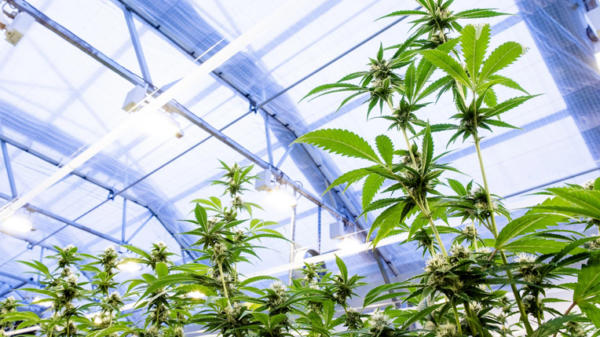The NCAA is relaxing its THC-testing policies for student athletes, while proposing to handle penalties for positive tests differently going forward.
The National Collegiate Athletic Association made the announcement Friday, saying that the committee on competitive safeguards and medical aspects of sports increased thresholds for THC, and recommended a new penalty structure for college athletes who test positive.
NCAA chief medical officer Dr. Brian Hainlin says that reconsidering the approach to cannabis testing is consistent with membership feedback.
“Marijuana is not considered a performance-enhancing substance, but it remains important for member schools to engage student-athletes regarding substance use prevention and provide management and support when appropriate,” he explains in a statement.
Committee on Competitive Safeguards and Medical Aspects of Sports adjusts THC test threshold https://t.co/x5Z04kTmDN
— NCAA News (@NCAA_PR) February 25, 2022
The safeguards committee raised the threshold for THC to 150 nanograms per millilitre, from 35, aligning with levels set by the World Anti-Doping Agency.
The increase is effective immediately, and applicable to drug tests administered in fall 2021 or later.
As for adjustments to penalty structures, the NCAA recommends that its divisions consider changes to penalties for positive THC tests, but each division will need to separately adopt new legislation for that to happen.
Under the proposed structure, when a student athlete first tests positive for THC, they won’t lose their eligibility to play if the school provides them with a “management plan and education.”
For a second positive test, the committee gives the same recommendation as the first. But if a college athlete isn’t compliant with the school’s plans, they must be withheld from a quarter of regular-season games.
On a third positive test, there’s again no loss of eligibility if the school provides additional plans, and confirms the student athlete was compliant with the previous treatment. But if the athlete wasn’t compliant, they must be withheld from half of regular-season games.
Read more: WADA to review cannabis ban after Sha’Carri Richardson’s suspension
Read more: USA Track and Field calls for reevaluation of WADA’s THC rules
The adjustments were approved after careful consideration and extensive discussion made by the drug testing subcommittee, which has been meeting since last fall, says safeguards committee chair Dr. Stephanie Chu, who’s also a Colorado team physician.
“The updated cannabis testing policies create a clear pathway for student athletes to participate in education and management programs specific to their needs at the campus level,” she adds in a statement.
The NCAA suggests future reforms to its drug policies are possible, but would have to follow changes initiated by WADA and remain subject to review and approval.
WADA has said it’s initiating a review of its cannabis policies this year, but pot will continue to be prohibited by the agency in 2022.
Follow Kathryn Tindale on Twitter
kathryn@mugglehead.com














